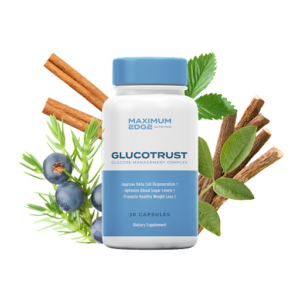
Understanding the Glycemic Index of Cucumber(0): A Comprehensive Guide
In today’s health-conscious world, understanding the glycemic index (GI) of different foods plays a crucial role in maintaining a balanced diet. Cucumbers, with their refreshing crunch and high water content, are a popular vegetable choice among those seeking low-calorie and nutritious options. But what about their glycemic index? In this blog post, we’ll delve into the glycemic index of cucumbers, exploring what it means, how it affects blood sugar levels, and why cucumbers are an excellent addition to a healthy eating plan.
What is the Glycemic Index (GI)?
The glycemic index is a numerical ranking system that measures how quickly carbohydrates in food raise blood sugar levels compared to pure glucose, which is given a GI value of 100. Foods with a high GI are digested and absorbed rapidly, leading to a sharp increase in blood sugar levels, while foods with a low GI are digested and absorbed more slowly, causing a gradual and steady rise in blood sugar levels.
Glycemic Index of Cucumber:
Cucumbers are incredibly low in carbohydrates, with a mere 3.63 grams per 100 grams of the vegetable. Due to their minimal carbohydrate content, cucumbers have an exceptionally low glycemic index. In fact, they have a GI value of zero! This means that cucumbers have no significant impact on blood sugar levels and are an ideal food choice for individuals looking to manage their blood sugar levels or follow a low-GI diet.
Benefits of Low-GI Foods:
Including low-GI foods like cucumbers in your diet can offer numerous health benefits:
1. Blood Sugar Management: Low-GI foods help regulate blood sugar levels, making them suitable for individuals with diabetes or those aiming to prevent blood sugar spikes and crashes.
2. Weight Management: Low-GI foods tend to keep you feeling fuller for longer, aiding in appetite control and reducing the likelihood of overeating. Cucumbers, being low in calories and high in water content, can be a satisfying snack or addition to meals without adding excess calories.
3. Energy Sustenance: Foods with a low glycemic index provide a steady release of energy, preventing sudden energy dips and promoting sustained physical and mental performance throughout the day.
4. Heart Health: A diet rich in low-GI foods has been associated with a reduced risk of cardiovascular diseases, such as heart disease and stroke.
Incorporating Cucumbers into Your Diet:
Cucumbers are incredibly versatile and can be enjoyed in various ways:
1. Fresh in Salads: Add sliced cucumbers to your salads to add crunch and hydration without worrying about affecting your blood sugar levels.
2. Hydrating Snack: Cucumbers are composed of approximately 96% water, making them a hydrating snack option during hot summer days or after workouts.
3. Infused Water: Slice cucumbers and add them to a pitcher of water with a few sprigs of mint or a squeeze of lemon for a refreshing and hydrating beverage.
4. Pickles: Fermented cucumber pickles offer a tangy and low-calorie option to satisfy your craving for a savory snack.
Conclusion:
When it comes to maintaining stable blood sugar levels and following a low-glycemic diet, cucumbers are a top-notch choice. With their incredibly low glycemic index, cucumbers offer numerous health benefits, including blood sugar management, weight control, sustained energy levels, and heart health. Incorporating cucumbers into your diet is simple, as they can be enjoyed fresh, pickled, or infused into water. So, make sure to include this hydrating and low-GI vegetable iny our daily meals and reap the nutritional rewards they have to offer.
Remember, the glycemic index is just one factor to consider when planning a healthy diet. It’s important to focus on overall balanced eating, including a variety of fruits, vegetables, whole grains, lean proteins, and healthy fats. However, cucumbers can be a valuable addition to your meal plan, providing hydration, essential nutrients, and a refreshing crunch, all while keeping your blood sugar levels in check.
So, the next time you’re looking for a low-glycemic, nutritious, and delicious snack or meal accompaniment, reach for a crisp cucumber. Your taste buds, waistline, and overall well-being will thank you for it!
Disclaimer: The information provided in this blog post is for educational purposes only and should not replace professional medical advice. If you have specific dietary concerns or health conditions, consult with a registered dietitian or healthcare professional to tailor your diet to your individual needs.
- What does Prediabetic Mean? Understanding the Early Warning Signs and Risk Factors
- Understanding the Glycemic Index of Cucumber(0): A Comprehensive Guide
- Exploring the Nutritional Value of Mussels: Nutrition Facts and Health Benefits
- Monster Energy Nutrition Facts: Unveiling the Ingredients and Their Purpose
- Coke Zero Nutrition Facts Unveiled: A Healthier Alternative to Regular Soda?
- Unlocking the Nutritional Power: Kale(15) and Kala Chana(30) Glycemic Index Revealed
- Pickles Glycemic Index:(30) A Low-GI Snack
